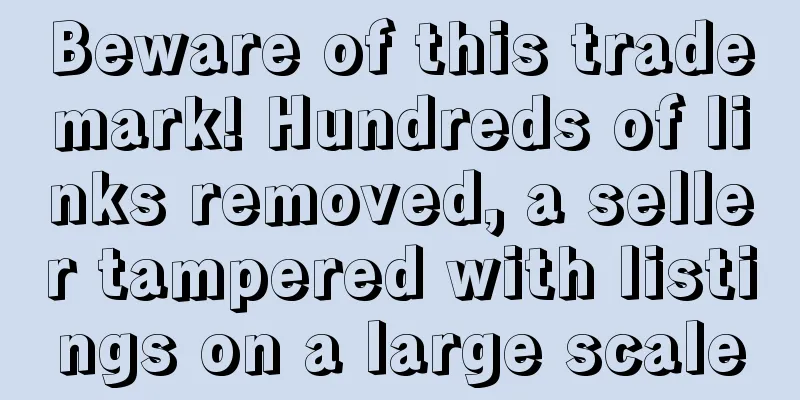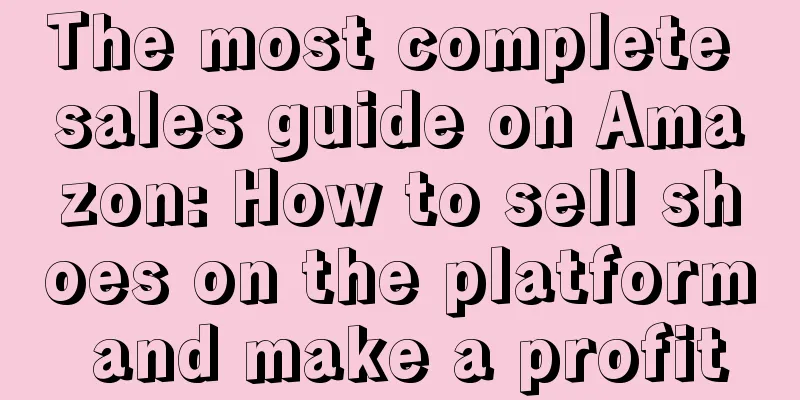|
The increase in FBA fees seems to have become a must-go for Amazon sellers every year. Last November, Amazon announced that it would adjust a number of logistics fees starting January 17, 2023. At the same time, in order to improve warehouse utilization efficiency, Amazon has further refined the charging items, and now some of the new policies will take effect in April.
Recently, many sellers have received the latest notice from Amazon. Starting from April 1, a storage usage surcharge will be levied on the monthly storage fee. For sellers whose storage utilization rate is higher than 26 weeks and meets the standards, Amazon will calculate the storage utilization rate on April 30 and start charging in May. It is foreseeable that once the policy officially takes effect, the profit margins of a large number of sellers will inevitably be at risk.
In recent years, the pain of rising costs has been everywhere on sellers' overseas expansion journey. From the soaring shipping costs to the climbing FBA fees, most people's cross-border sales have been deeply affected.
However, the soaring costs are scary, but the pranks of competitors are even more worrying. In the face of the pain of the FBA fee increase, some bad sellers took advantage of the situation and maliciously attacked the store, causing hundreds of links to be removed. Fujian sellers tampered with listings on a large scale, and hundreds of links were removed due to complaints The road to going overseas is fraught with dangers, and the most difficult to guard against is deliberate pranks by competitors. At the very least, Amazon will block your account and issue a warning, and at worst, your entire store will suffer.
We learned that recently a senior seller in the industry broke the news on Weibo that a domestic seller launched a malicious attack, tampered with the listings on a large scale and then filed infringement complaints, which led to a large number of listings being removed from the shelves. Some sellers had dozens of links hit, and some sellers had hundreds of links wiped out.
▲ The picture comes from Weibo
It is reported that the main method used by the instigator was to tamper with the trademarks of a large number of listings to "OIMG", and then file complaints with Amazon on the grounds of trademark abuse and counterfeit products purchased without test.
A seller on a European site reported that the trademarks of 40 links on his entire site were changed to "OIMG", of which 4 links on the French site were complained to be counterfeit products, and under the other party's continued spoofs, more and more listings were constantly dragged into the water.
Similar situations happen to many sellers:
"My products on the Italian site were also affected. The counterfeit products that were complained about were reserved, the descriptions were changed to OIMG's, and the links were directly deleted." "I've been screwed by him many times, but fortunately Amazon restored it after I appealed." "My company also encountered this OIMG attack not long ago. Then I checked the listing and found that this word was not there at all. Just when I was about to file an appeal, Amazon automatically revoked it."
The senior seller found out that the prankster was backed by a company from Quanzhou, Fujian. Public information shows that the company was founded in 2019 and has registered multiple trademarks including OIMG and OEMG.
In fact, a similar "closhion" spoof incident has occurred before. In May last year, a large number of sellers received infringement complaints from "chenxiaohua" at the same time. After searching, it was found that the trademark of the spoofer was "closhion", but the listings and trademarks of the complained merchants did not involve this word. Under the persistent email bombardment of "chenxiaohua", many sellers had a large number of links suspended from sale.
▲ The picture comes from Weibo
A seller revealed that his store on the European site seemed to be infected with a Trojan virus and had been subject to malicious complaints. However, after trying to contact the other party, all the emails he sent fell into the sea.
From the "closhion" incident to the "OIMG" incident, the sellers who suffered were basically all categories. The real purpose of the spoofers is still unknown. In addition to launching vicious competition, some sellers also speculated that this might be a "conspiracy" of the trademark service provider, or someone wanted to test new black technology methods. How to guard against the pranksters’ “Palace Intrigue”? As the saying goes, once you enter Amazon, it is like entering a deep sea. Faced with fierce market competition, it is inevitable that some merchants will take shortcuts and use various "palace intrigues" to attack the defenses of their competitors' listings.
The most common spoof method at present is to file a copyright infringement complaint. Common spoof routines include registering keyword trademarks for complaints, copying listings to independent sites to report copyright infringement, and using similar patents to initiate malicious complaints.
If a keyword is preemptively registered, the seller can check whether it is a TM mark on the trademark website and file a complaint with the relevant service provider. At the same time, you can also open a case to consult Amazon customer service about the specific infringing words and remove them in a timely manner. If the situation is serious, you need to write a POA appeal for recovery based on the actual situation.
In summary, sellers need to take the following precautions in their daily operations:- Be aware of and strictly abide by Amazon's intellectual property protection policy, avoid using infringing content in product titles, descriptions, images and other information, and ensure that product titles and descriptions are accurate and clear and do not contain misleading information;
- Choose products carefully, confirm whether the source of goods has a brand or patent, and ensure that the supply channel is formal and legal;
- Before putting a product on the shelves, use intellectual property search tools and professional service agencies to carefully verify whether it infringes on the intellectual property rights of others, such as patents, trademarks, copyrights, etc.;
- Check products regularly to ensure that titles, pictures, etc. do not overlap with other listings;
- If you are accused of infringing on the intellectual property rights of others, you must promptly retain all evidence, including negotiation records with the right holder, product design and manufacturing records, etc.
It is difficult to guard against spoofs, so sellers should build a solid defense barrier anyway to prevent spoofers from taking advantage of them.
|










